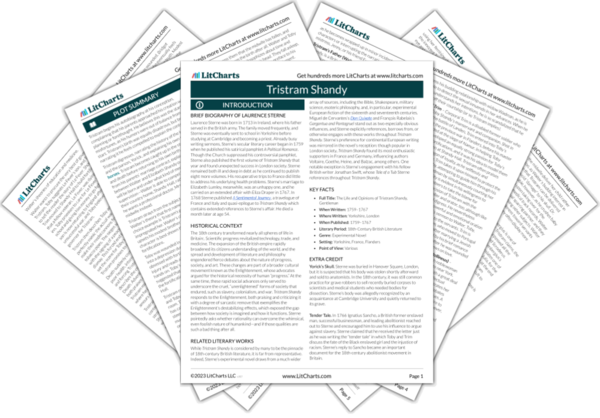Chapter 15. Tristram wishes he could write a chapter on sleep, as this part of the story presents a perfect opportunity for it. Despite this, Tristram is more called by the subject of buttonholes. Sleep, he argues, is the finest pleasure available to humankind but also an enduring mystery, and he quotes
Don Quixote and Montaigne to back up his point.
